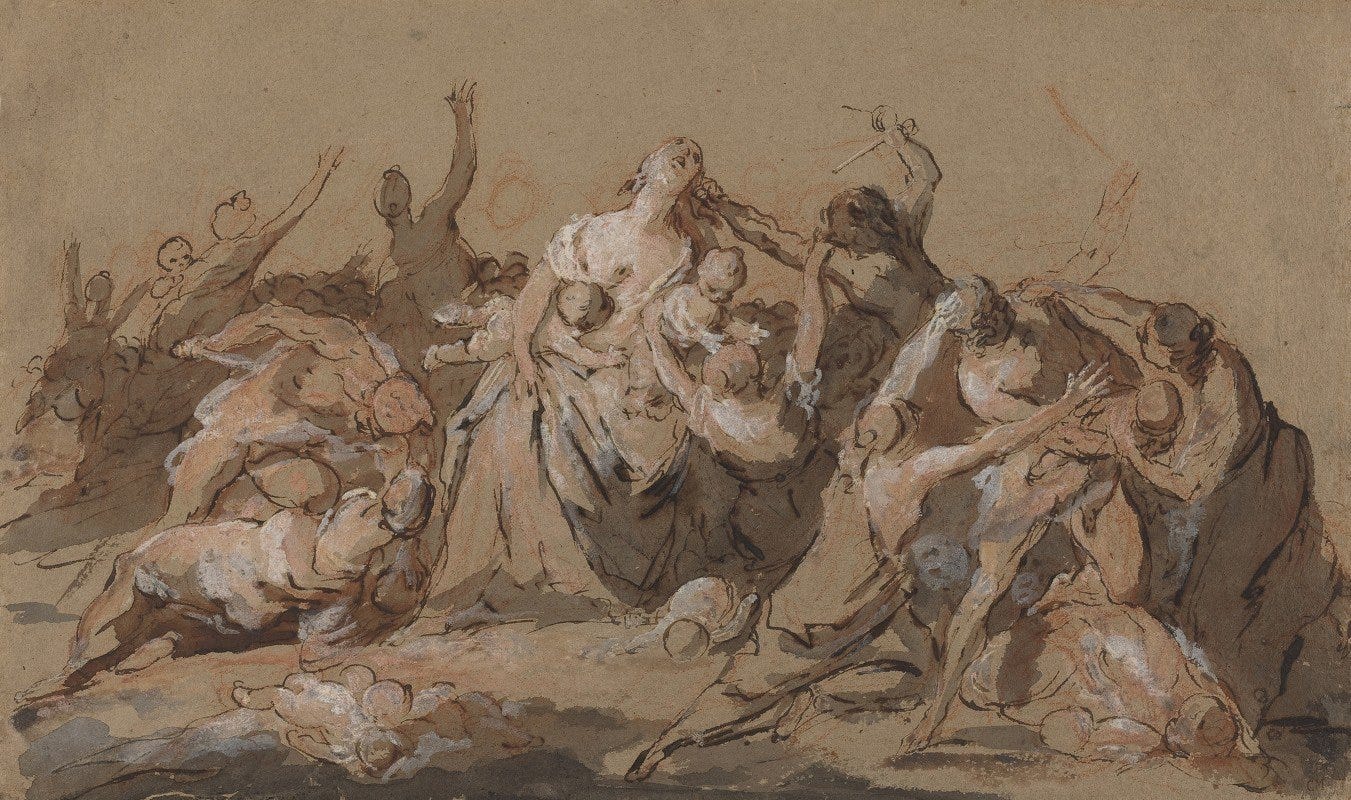How a Massacre Changed My Perspective on Politics
Was this evil? Or was it something else?
10 years ago today, the worst massacre in modern Egyptian history took place. It happened in the middle of Cairo in broad daylight, over the course of hours. Over 800 were killed. Even as I write this, I wonder to myself did it really happen? Which is my way of asking, naively: How? Why?
Tens of thousands of Brotherhood supporters were encamped by Rabaa Adawiya mosque. They were protesting the July 3, 2013 military coup that ousted the country’s first democratically-elected president, Mohamed Morsi. Morsi also happened to be a leader of the Muslim Brotherhood. Respecting democratic outcomes when you like those outcomes was one thing. But, for many Egyptians, respecting democracy when it produced “bad” outcomes was a bridge too far. After all, if democracy was good, it had to produce good outcomes. Otherwise what was the point?
For its part, the army was threatening to move in. We all knew it would happen. It was only a question of when—and how bloody it would be.
I left Egypt two days before it happened, on August 12. It is an odd thing to wait for a massacre.
With the forced “clearing” of Rabaa, a new phase began, as Brotherhood members—at least the ones who weren’t in prison—tried to make sense of an Egypt they no longer recognized. They had, of course, experienced repression before. This, though, was different.
Coup leader Gen. Abdel Fattah al-Sissi had a messianic streak that was both frightening and bizarre. (I don’t use the word messianic lightly here). In a leaked off-the-record interview, for instance, Sissi tells confidant Yassir Rizk that thirty-five years ago he started having dreams where he raises “a sword with ‘There is no God but God’ written on it in red.” In another dream, a voice comes to Sissi, saying “we will give to you what we have given no other.” In public, Sissi presented himself as a savior figure who would “maximize” state power to pull the Egyptian people—“the light of his eyes,” he called them—from their sorry state. He traded in his beatific, paternal tone in private. “People think I'm a soft man. Sissi is torture and suffering,” he once told a journalist.
Sissi was a dictator, but he was a popular one, especially in the beginning. An odd cult of personality built up around the new leader. One female journalist actually offered herself as a concubine to General Sissi. A state-owned newsmagazine featured thirty smiling Sissis on its cover, all wearing different clothes – doctors, engineers, laborers—with the words “All of Egypt is Sissi” emblazoned at the top. Soon, there would be Sissi-themed pajamas for women featuring the general himself, sporting dark sunglasses.
Often, Sissi was criticized for not being repressive enough, including in the lead-up to the massacre. Millions of pro-coup Egyptians wondered why it was taking so long for the dear leader to act. When it finally did happen, they cheered on the dispersals and the killings, encouraged by the nonstop demonization of the Brotherhood in the state and private media. Egypt’s savior had delivered. Rarely had celebrity been so inseparable from brutality.
It was frightening to watch people you knew get caught up in what can only be described as mass hysteria. The weekend before the army moved in, I went to Egypt’s North Coast to visit family, hoping to escape, even if briefly, the fear, anger, and polarization consuming Cairo. Sitting by the beach, a relative performed a morbid demonstration, pointing to the coffee table in front of us and chopping his hand down on it. The table shook. He said he wanted the severed heads of each of the Brotherhood’s top leaders right there on the table, listing them each by name. I knew he was half-joking, performing a kind of theatre of the absurd. However, another relative, my well-educated and sensible uncle, was deadly serious. He took to his Facebook page to publicly call for the execution of Muslim Brotherhood members without due process.
I tried to make sense of all of this, and it colored everything that came after, whether consciously or subconsciously. When your own family members show themselves to be capable of such bloodlust—bloodlust I hadn’t witnessed before—it forces you to think not only about fragility of politics, but also the fragility of simple human interaction, the ability to see the other as worthy of dignity even if we think their political ideas are genuinely terrible.
To be free of such violence, the indiscriminate violence of the state, is something we take for granted. We shouldn’t. We might think (or hope) that the people close to us would draw a line and refuse to support unspeakable acts. I’m not so sure such hope is warranted. We are all products of our contexts. Everything is contingent. We must love what we have, when we have it.
Wisdom of Crowds is a platform challenging premises and understanding first principles on politics and culture. Join us!




Assalam ealakum. Amen brother.
Sissi's still president. Tens of thousands are still in prison there. How many martyrs over the past ten years? How many refugees? The parties responsible for stirring up all of this hatred of political Islam are still in control of the media, still stirring the hatred. There can be no forgiving the perpetrators of this until they're brought to justice inshaAllah. My heart goes out to the Egyptians who've been victims of this treachery.